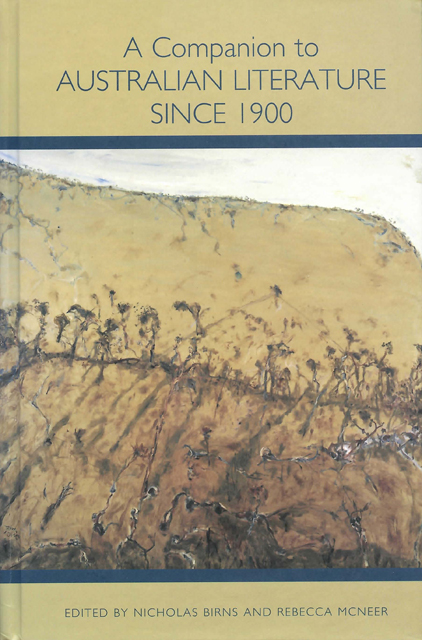Book contents
- Frontmatter
- Dedication
- Contents
- Chronology of Main Events in Australian History, 1901–2005
- Acknowledgments
- Note on the Cover Illustration and Artist
- Introduction
- Part 1 Identities
- Part 2 Writing Across Time
- Part 3 International Reputations
- Part 4 Writers and Regions
- Part 5 Beyond the Canon
- Notes on the Contributors
- Index
17 - Les Murray
Published online by Cambridge University Press: 10 March 2023
- Frontmatter
- Dedication
- Contents
- Chronology of Main Events in Australian History, 1901–2005
- Acknowledgments
- Note on the Cover Illustration and Artist
- Introduction
- Part 1 Identities
- Part 2 Writing Across Time
- Part 3 International Reputations
- Part 4 Writers and Regions
- Part 5 Beyond the Canon
- Notes on the Contributors
- Index
Summary
Probably no Australian Writer since Patrick White, and certainly no Australian poet, has achieved such a high national stature and worldwide reputation in his own lifetime as Les Murray. Born in rural Nabiac (NSW) in 1938, of Scottish descent, the author of some twenty volumes of poetry, several collected editions, two verse novels, and dozens of essays has steadily dedicated his writing to the exploration and circulation of his ideas about the human condition, about Australia, its past and future, about modern life and man’s relationship to nature and to God. His work has won him numerous national and international prizes and has been widely translated. At the same time his critical views on Australian politics, intellectual fashions, dogmatism and ideology, the power of the media, and his promotion of what many see as conservative “bush values” have also made him a controversial figure. While his poetry is widely admired, his “politics of poetry” is often less so. Yet to appreciate his sometimes knotty and mystifying texts requires, and repays, close study and intellectual effort.
Murray’s poetry grows out of the individual experience of an Australian who knows both the bush, where he grew up, and the city. In 1986 he returned to live on his ancestral farm in Bunyah. But for all this rootedness in a local context Murray shows an intense interest in the world at large, in matters social, political, ecological, religious, and linguistic. One of his enduring concerns, articulated especially in the collection Translations from the Natural World (1992) is the role that language plays in the division of man from himself, from nature, and from transcendence. In a striking line such as “A human is a comet streamed in language far down time” (“From Where We Live on Presence,” CP, 378) he conveys his view of human nature as historically and linguistically determined yet at the same time unique, transitory, and mysterious. Throughout his writing Murray explores the possibilities of overcoming such constrictions of history and of imposed language: the dominance of the intellect, of theory and ideology over the spiritual and the mysterious.
- Type
- Chapter
- Information
- A Companion to Australian Literature since 1900 , pp. 269 - 280Publisher: Boydell & BrewerPrint publication year: 2010

